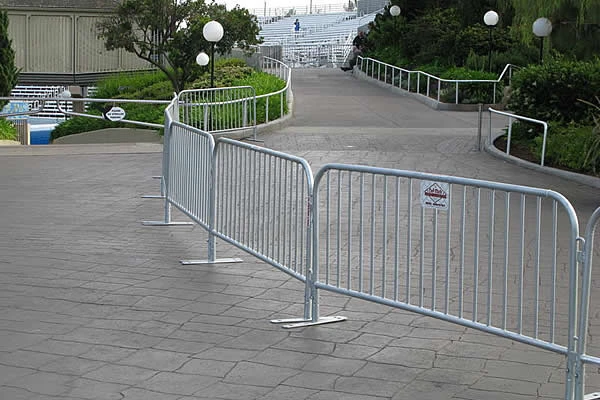 TEL:
+86-13102802206
TEL:
+86-13102802206
 Email:
fencenetting@china.com
Email:
fencenetting@china.com
 Language
Language
 TEL:
+86-13102802206
TEL:
+86-13102802206
 Email:
fencenetting@china.com
Email:
fencenetting@china.com
 Language
Language


Gabions as Retaining Walls A Practical Solution for Erosion Control
In the world of civil engineering and landscape architecture, the challenge of managing soil and preventing erosion is ongoing. Among various solutions available, gabions have emerged as an effective and aesthetically pleasing option for constructing retaining walls. Composed of wire mesh boxes filled with stones, gabions offer numerous benefits that make them an increasingly popular choice for both residential and commercial projects. This article will explore the advantages, applications, and considerations when using gabions as retaining walls.
Understanding Gabions
Gabions, derived from the Italian word gabbione, meaning big cage, are structures made from cylindrical or rectangular wire mesh containers filled with a variety of materials, predominantly rocks or soil. Historically used for military fortifications, they have evolved into versatile structures in modern engineering. Their construction is relatively straightforward; the wire mesh is formed into a box shape, filled with stones or other suitable materials, and then stacked to form a wall.
Advantages of Gabion Retaining Walls
1. Stability and Durability Gabion walls are highly stable due to their weight and the natural drainage they provide. The rocks within the gabions allow water to flow through, preventing hydrostatic pressure, which can often compromise solid walls. This feature makes them ideal for areas with high rainfall or near water bodies.
2. Environmental Benefits Gabions blend well with the environment, which is crucial in ecological restoration. The rocks can support vegetation growth, allowing plant roots to interweave with the wall structure. This not only enhances the wall's stability but also provides habitat for local wildlife, promoting biodiversity.
3. Cost-Effectiveness In many cases, gabion walls can be a more economical option compared to traditional retaining wall structures. The materials used for filling the gabions, such as local stones, can be less expensive than concrete or brick. Additionally, their installation requires less labor and time, thus reducing overall project costs.
4. Aesthetic Appeal Gabion walls can be designed to suit various aesthetic preferences. The natural look of the stone can be visually appealing, and they can be integrated into landscapes without disrupting the natural scenery. Furthermore, the use of different sizes and colors of stones allows for creative designs that enhance the beauty of gardens, parks, and public spaces.
5. Minimal Maintenance Once installed, gabion walls require little to no maintenance. Unlike traditional walls that may need repairs, painting, or weatherproofing, gabions are resilient to environmental wear and tear. As long as the wire mesh remains intact, the structure will endure.
Applications of Gabions

Gabion retaining walls are suitable for various applications
. Their use is prevalent in- Highway and Road Construction To prevent soil erosion and landslides near roadways, gabion walls offer a reliable solution for stabilizing embankments. - Commercial Development In urban settings, they provide soil retention for building foundations, parking lots, and landscaped areas. - Residential Projects Homeowners can utilize gabions for garden terraces, pool areas, and decorative landscaping features. - Riverbanks and Coastlines Gabions are extensively used in flood control measures and as protective barriers along rivers and coasts to combat erosion.
Considerations When Choosing Gabions
While gabion walls offer many advantages, certain factors must be considered before their installation
1. Soil Type and Site Conditions The stability of gabion walls can depend on the soil type and the site's drainage capabilities. It’s essential to conduct a thorough site evaluation to determine the feasibility of using gabions.
2. Quality of Materials The durability of a gabion wall relies substantially on the quality and size of the stones used. Larger, heavier stones are typically more effective in maintaining wall integrity.
3. Design and Engineering While gabions are relatively simple to construct, designing a retaining wall requires expert knowledge to ensure proper height, width, and structural stability. Consulting with a qualified engineer or landscape architect is recommended.
4. Environmental Regulations In some areas, local regulations regarding construction near waterways may impact the use of gabions, making it essential to consult with local authorities before proceeding.
Conclusion
Gabion retaining walls provide a functional, economical, and ecologically friendly solution for soil retention and erosion control. Their versatility, durability, and aesthetic appeal make them an excellent choice for a wide range of applications, from highways to residential gardens. As with any construction material, careful planning and adherence to best practices are crucial for optimizing their benefits and ensuring their longevity. With these considerations in mind, gabions stand out as a practical and attractive option in modern engineering landscapes.